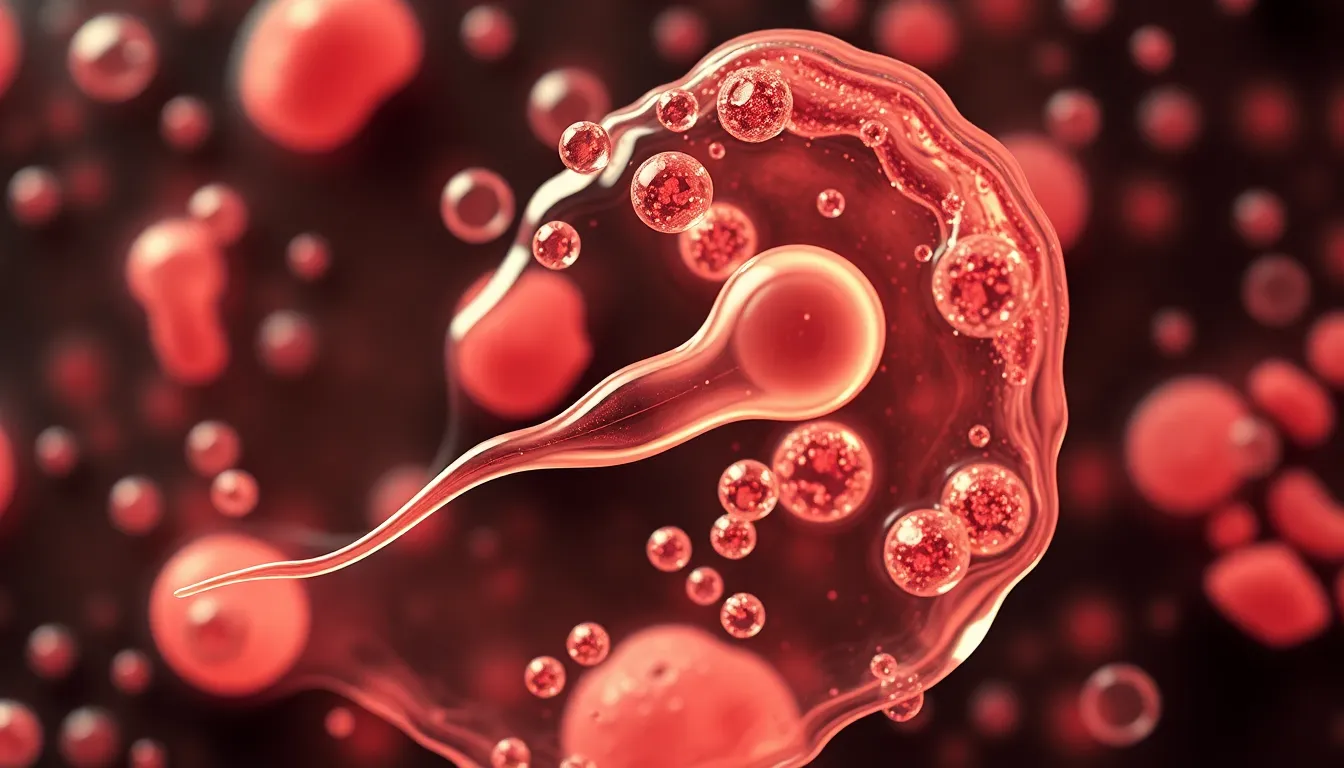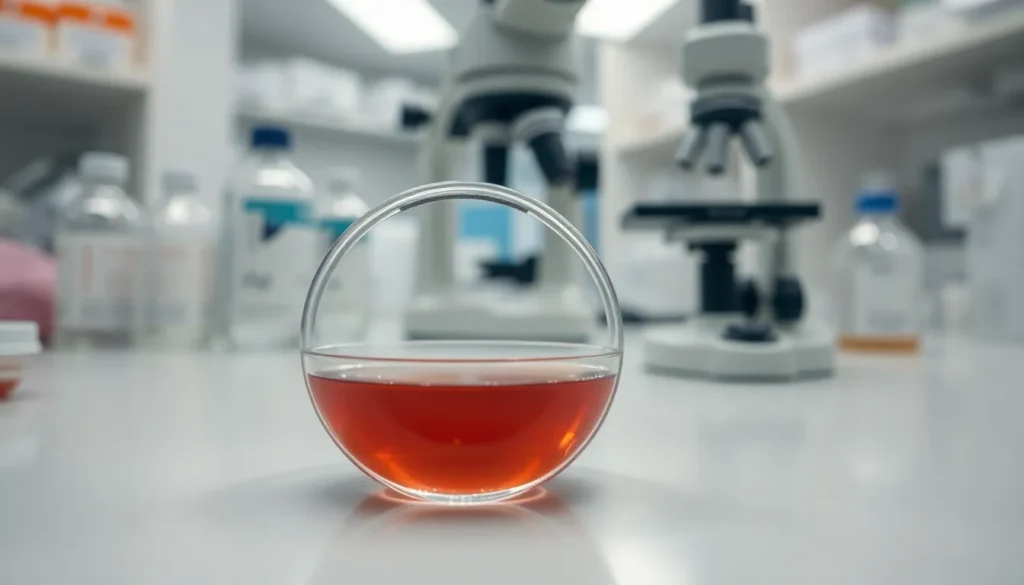Table of Contents
ToggleCuriosity often leads to some surprising questions, and one that might raise a few eyebrows is whether there’s protein in semen. While it may not be a topic for casual dinner conversation, understanding the nutritional content of semen can spark interest for various reasons, from health discussions to just plain curiosity.
Overview of Semen Composition
Semen consists of various components that contribute to its overall properties. Understanding its composition reveals important nutritional aspects.
Key Components of Semen
Semen includes several key components, such as sperm cells, seminal plasma, and enzymes. Sperm cells account for a small percentage of the volume but are essential for reproduction. Seminal plasma contains proteins, sugars, vitamins, and minerals, providing nourishment to sperm cells. Notably, proteins in seminal plasma, such as semenogelin and fibronectin, play critical roles in sperm motility and stability. Overall, the combination of these components creates an environment that supports fertility.
Importance of Semen Analysis
Semen analysis serves as a valuable tool in assessing male reproductive health. Medical professionals often evaluate sperm count, motility, and morphology during this analysis. Results provide insights into potential fertility issues and inform treatment options. Recognizing abnormalities in semen can lead to early interventions, increasing the chances of successful conception. Semen analysis also aids in understanding hormonal levels and overall reproductive function, contributing to more comprehensive healthcare solutions.
Nutritional Content of Semen

Semen contains a variety of nutrients, including proteins critical for reproductive functions. Understanding its composition can clarify its significance in health discussions.
Is There Protein in Semen?
Yes, semen does contain protein. Proteins comprise approximately 2-5% of the total volume of seminal fluid. This includes essential proteins that support sperm function and overall reproductive health.
Types of Proteins Found in Semen
Semen contains several types of proteins, including semenogelin and fibronectin. Semenogelin plays a key role in the coagulation of semen, which aids in sperm mobility. Fibronectin helps stabilize sperm and is involved in cellular processes during reproduction. Other proteins, such as prostate-specific antigen (PSA), also contribute significantly to the fluid’s overall function and fertility potential.
Health Benefits of Semen
Semen contains various components that may offer health benefits. Understanding these benefits can enhance discussions surrounding male reproductive health.
Nutritional Value for Fertility
Semen provides essential nutrients that support fertility. Vitamins and minerals found in semen, such as zinc and vitamin C, contribute to overall reproductive health. Proteins like semenogelin and fibronectin play vital roles in ensuring sperm motility and stability. Adequate protein levels in semen also help sustain sperm viability, enhancing the chances of conception. Additionally, seminal plasma’s sugar content supplies energy that supports sperm function. This combination of nutrients can improve reproductive outcomes for couples trying to conceive.
Potential Effects on Sexual Health
Semen may have positive effects on sexual health beyond reproduction. Some studies indicate that certain proteins in seminal fluid can influence hormonal levels. Prostate-specific antigen (PSA) is one such protein, contributing to reproductive function. Healthy semen may also enhance sexual satisfaction for both partners, as its presence can reflect good reproductive health. Emotional and psychological factors related to sexual health also benefit from positive fertility experiences. Understanding these effects can promote a holistic approach to sexual and reproductive well-being.
Misconceptions About Semen
Many misconceptions surround semen, often leading to confusion. Understanding these myths helps clarify the issue.
Common Myths and Facts
Some people believe semen contains large amounts of nutrients. In reality, while semen has protein—about 2-5% of its total volume—it’s not a significant food source. Additionally, misconceptions suggest that semen is a rich source of vitamins. The truth is, it does contain certain nutrients, but in small quantities. Myths also exist regarding the health benefits of consuming semen. Limited scientific evidence supports any significant health advantage from this practice.
Understanding Semen and Diet
Semen composition reflects a man’s diet and overall health. A balanced diet plays a crucial role in the quality of semen produced. Nutrients like zinc and vitamin C contribute positively to semen health. These components help promote sperm motility and overall reproductive function. Foods rich in these nutrients, such as nuts, fruits, and vegetables, support male reproductive health. Focusing on nutrition can yield noticeable benefits in semen quality and fertility potential. Keeping a healthy lifestyle enhances not only semen quality but also general health.
Understanding the protein content in semen sheds light on its role in male reproductive health. While it contains proteins that support sperm motility and stability, it’s important to remember that semen isn’t a significant food source. The nutritional value it offers is limited and should not replace a balanced diet.
Focusing on overall health and nutrition can enhance semen quality and fertility potential. Adopting a healthy lifestyle with nutrient-rich foods can positively impact reproductive health. Therefore, while semen does contain protein, it’s just one piece of the larger puzzle in understanding male fertility and sexual well-being.



